AI Generator
Reimagining Music Legends: The Possibilities And Limitations Of Ai-Generated Music

With the ongoing advancements in technology, staying updated with the most recent trends can be challenging. You’ve likely heard about the emergence of AI-generated music and its transformative impact on the industry.
It seems like every day, there’s a new breakthrough or innovation that allows us to create music in ways we never thought possible. But what about taking this one step further?
What if we could use AI-generated music to reimagine our favorite music legends? To explore the possibilities and limitations of this concept, let’s take a look at AI-generated music and how it affects the industry today.
Overview of AI-Generated Music
With the advent of modern technology, it’s now possible to create tunes that are virtually indistinguishable from their human-made counterparts – making it an exciting time to explore the capabilities of AI-crafted music.
While some may feel that artificial intelligence will never be able to replicate complex emotions and feelings in unscripted pieces, AI-generated music has been used for years in composition and production.
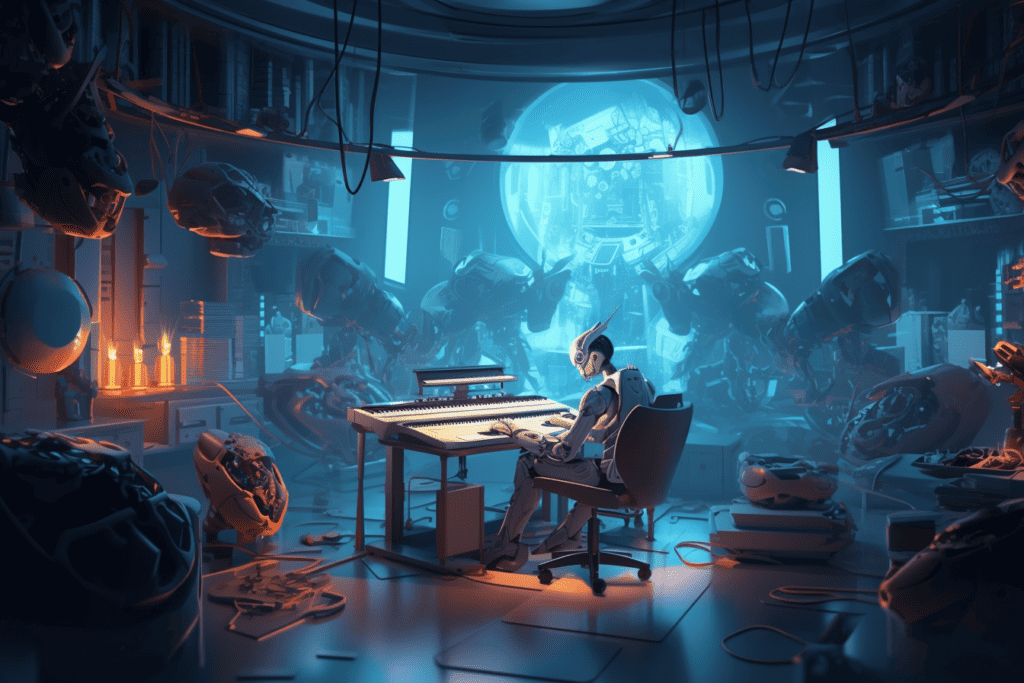
From film scores and commercial advertising jingles to songs written by robot composers, this type of technology has infiltrated all areas of the industry.
The cultural implications and consumer acceptance of AI-generated music can be a contentious topic. On one hand, there is potential for AI to revolutionize how we create music by providing tools not previously available or accessible to many musicians.
On the other hand, some worry about what effect this could have on the creative integrity of existing genres or even undermine traditional songwriting techniques altogether.
Nevertheless, AI is here and its influence on modern music cannot be denied.
Possibilities of AI-Generated Music
Examining the potential of AI-created tunes could help us uncover the truth behind a hypothesis, painting a vivid image for readers.
By exploring different genres and integrating technology into music production, artists can create unique compositions that blend both human and machine elements. This allows for vibrant soundscapes to be crafted with diverse instrumentation, lyrical content, and structures that may not have been achievable in the past.
With AI-generated music, musicians have access to endless possibilities as they explore new ways of creating art through this innovative technology. However, despite its promise, there are still certain limitations when it comes to using AI to produce music.
Limitations of AI-Generated Music
You may have heard of the potential of AI-created tunes, but there are still some barriers that come with using AI to produce music.
One limitation is vocal synthesis, which involves creating artificial voices from scratch and is a difficult task for machines. To date, no computer has been able to create a convincing human voice without relying on recordings or samples of actual humans. This can be seen as both a limitation and an ethical issue due to copyright laws surrounding the use of such samples.
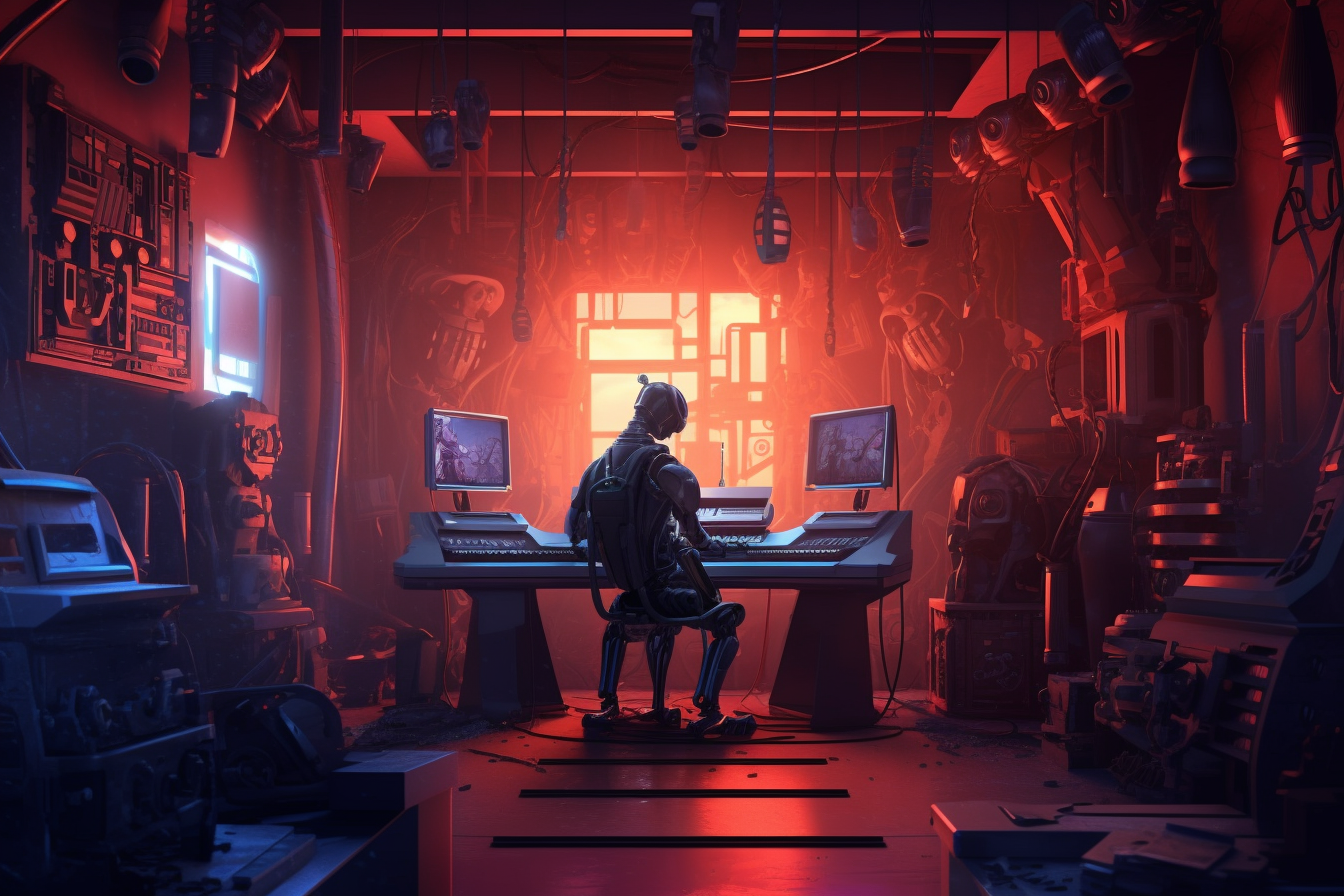
Furthermore, AI-generated music could potentially infringe upon existing copyright by replicating sounds too closely similar to those in existing songs. This means that creators must be careful not to replicate copyrighted material when producing AI-generated music. These limitations prevent creative freedom in many ways and make it difficult for producers to explore new ideas while staying within legal boundaries.
While technology continues to improve and evolve, these limitations will continue to exist until legal standards are put in place regarding the usage of AI-generated music and its implications on intellectual property law. As such, understanding the current boundaries around this type of music production is essential in order for producers looking into this technology understand their rights before moving forward with any projects.
Moving ahead, it’s important to consider how AI-generated music could impact the music industry overall.
Impact of AI-Generated Music on the Music Industry
The potential of AI-created music is mind-boggling, and it’s time to look at how this new technology could reshape the entire music industry.
AI-generated music has already started to impact the way artists create and share their works, as well as how audiences engage with them. It has enabled musicians to produce content faster than ever before and make more intricate pieces of art. Additionally, it provides a platform for artists to experiment with different sounds and explore new ways of creating music in an efficient manner.
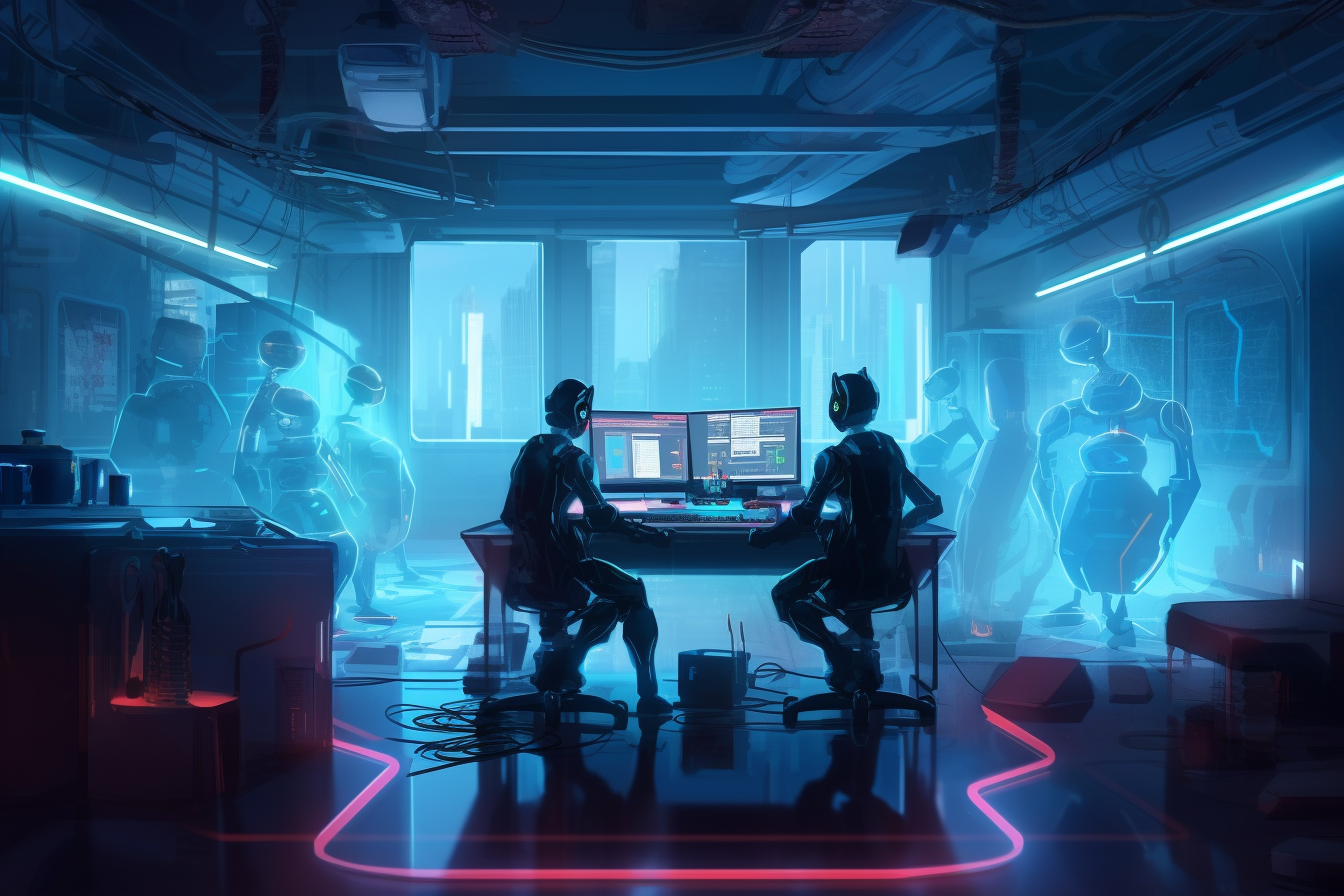
AI-generated music also has implications for the roles of producers and sound engineers. Producers are now able to oversee multiple projects simultaneously while sound engineers can focus on creating unique soundscapes that truly capture the emotion or story behind a song.
Moreover, thanks to AI technologies, fans have access to personalized playlists which feature songs tailored specifically for them based on their listening habits. All these changes will undoubtedly affect the way people consume music in the future and bring about exciting possibilities for both artists and fans alike.
Future of AI-Generated Music
As AI technology advances, the possibilities for AI-generated music are virtually endless, offering exciting new opportunities for musicians and fans alike. The potential of this rapidly advancing field is sure to open up a world of creative possibilities, but it is important to consider the ethical implications that accompany such capabilities.
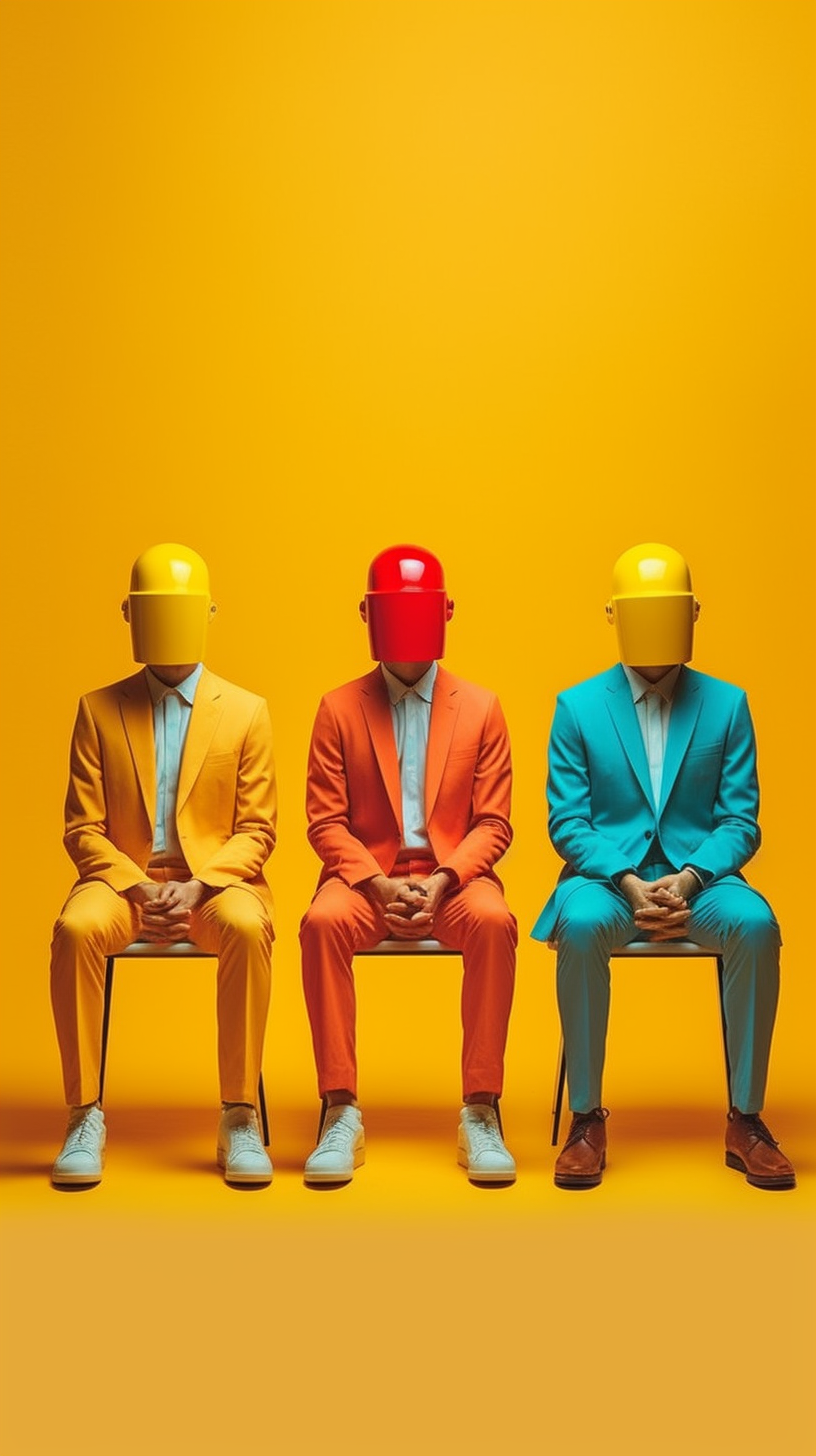
An algorithm’s ability to generate original music raises questions about who owns the rights to creations made with artificial intelligence. Similarly, it begs the question: can an algorithm be considered creative? The answer may depend on how deeply an algorithm has been programmed and how much human input has gone into its creation.
Nevertheless, automated processes could play an increasingly prominent role in producing music in the near future. For example, AI could be used to help compose entire pieces or suggest small modifications that enhance existing songs. In any case, it will be key for artists and developers alike to ensure that AI-generated music not only adheres to ethical standards but also celebrates creativity through thoughtful development and implementation of algorithms.
Frequently Asked Questions
How quickly is AI-generated music being adopted?
The adoption rate of AI-generated music has been surprisingly fast, with an increasingly receptive audience and large financial investments.
As both consumers and creators become more familiar with the technology, its capabilities are becoming more widely accepted.
Companies such as Sony Music Entertainment have already made major advances in the field, placing a strong emphasis on applications that will create better experiences for their customers.
While some may be hesitant to embrace AI-generated music at first, its potential to revolutionize the industry is undeniable and provides new opportunities for listeners to discover something unique and original.
What are the ethical implications of using AI-generated music?
As AI-generated music becomes more viable, it raises important ethical questions about the use of technology to create art.
It’s like painting with a brush made of data – the range of musical creativity is broadened, but there are serious implications for data privacy.
We need to consider who owns this kind of content, and how much control they have over it.
Moreover, we must ensure that AI-generated music does not take away from human creativity in any way – otherwise, artists may find themselves unable to compete with the speed and efficiency of an algorithm.
The potential benefits and drawbacks must be carefully weighed before embracing this new form of musical expression.
Are there any copyright issues associated with AI-generated music?
When it comes to copyright issues associated with AI-generated music, there are a few key points to consider.
The first is whether the AI-generated music accurately recreates existing musical works. If so, then those works may be subject to copyright terms that could limit the use of the AI-generated version.
Additionally, the creators of original works may have moral rights which could also be infringed if their work is recreated by an AI without permission or proper attribution.
As such, understanding and respecting applicable copyright laws should be considered when creating and using AI-generated music.
Are there any artists currently using AI-generated music in their work?
As an artist, I’m always looking for ways to innovate in my musical creations. Recently, I’ve been exploring the possibilities of using AI-generated music and have been delighted by the results.
A great example of this is the work of artist Jon Hopkins who recently released a single called ‘Emerald Rush’ that was almost entirely composed using AI algorithms. What’s really interesting about this song is that it raises questions about copyright and authenticity – can something created entirely by a computer be considered ‘original?
While there are still many legal questions to answer, it’s clear that AI-generated music has huge potential when used correctly and could revolutionize how we think about musical creation.
What technology is being used to create AI-generated music?
As technology advances, so do the possibilities of creating ai-generated music. Synthetic instruments and machine learning are two elements that are currently being used to create such music.
By using these technologies, producers can craft unique sounds without having to rely on traditional instruments or recordings. This opens up a world of creative possibilities, allowing for innovative musical experimentation that was not possible before.
With the right tools and knowledge, it’s now easier than ever to create artificial intelligence generated music that rivals the quality of any original composition.
Conclusion
As AI technology continues to develop and evolve, the possibilities and limitations of AI-generated music have become increasingly complex.
The implications of this new form of music production could revolutionize the industry, as well as how we think about our favorite music legends.
As a symbol for this transformation, AI-generated music is like a bridge between the past and future; it has the potential to unlock our nostalgia while propelling us into a new era of creativity.
It’s clear that when it comes to reimagining music legends, AI-generated music is an exciting prospect that can open up many possibilities – but only if we keep in mind it’s limitations and embrace its potential with caution.
AI Generator
Ownership Battle in the Age of AI-Generated Music

The emergence of artificial intelligence in music production has ushered in a new era of innovation. However, it has also sparked debates over ownership rights. As AI-generated music becomes more common, concerns about who owns these creations are brought to light.
This article delves into the legal battles and ethical debates surrounding AI-generated music ownership.
Defining Ownership in AI-Generated Music
In a traditional sense, determining the owner of the copyrighted material is straightforward. However, with AI-generated content, the situation becomes more complex.
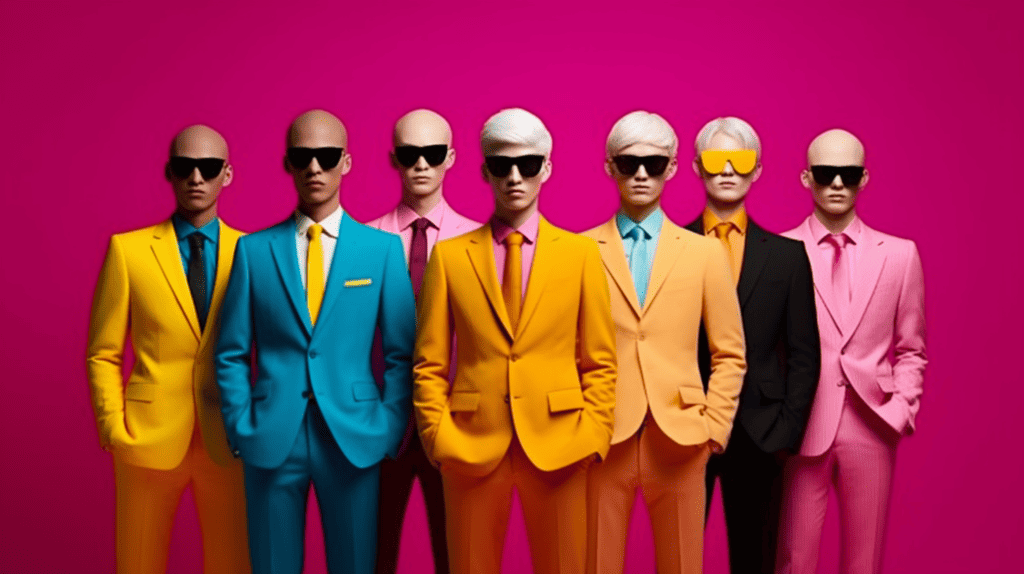
Is the creator of the algorithm that generated the music the owner? Is it the person who trained the algorithm? Is it possible to claim ownership over something not directly created by human hands?
Grimes’s Controversial Tweet: A Case Study
Grimes’s tweet about allowing her voice to be used in AI-generated music exemplifies this issue. She said she would sell her digital soul for $10 million, granting an AI company permission to use her voice as they wished. The tweet sparked controversy, with some seeing it as selling out and others viewing it as a clever move.
Legal Battles and Intellectual Property
Ownership rights of AI-generated music are just starting to be tested in courts. In 2018, Sony won a landmark case against musician Kevin Parks Jr., who claimed he had created songs using Sony’s software without permission or compensation. The court ruled in favor of Sony since their software was used in creating Parks’ songs.
This ruling raises questions about whether algorithms can be considered intellectual property or merely tools used by creators. If algorithms are deemed intellectual property, there may be issues surrounding their licensing for commercial use.
Record Labels and the Changing Dynamics
As record labels adapt to the rise of AI-generated content, they, too, must confront ownership rights issues. Record labels have historically owned much of the copyright associated with artists’ work; however, this dynamic may change as more artists turn to AI-generated music.
If an artist uses an AI program to create a piece of music, who owns the rights to that work? Is it the artist or the creator of the algorithm that generated it?
Implications for Streaming Platforms
The rise of AI-generated music also impacts streaming platforms like Spotify and Apple Music. These platforms have already faced criticism for their low royalty payouts to artists, and if AI-generated content becomes more prevalent, this issue may only worsen.
Additionally, as record labels lose some control over ownership rights, they may push for higher payouts from these streaming services.
Public Domain and AI-Generated Music
The implications of AI-generated music on the public domain are worth considering. AI algorithms often use existing music data to create new compositions, raising questions about whether AI-generated music should be considered part of the public domain or if new legal frameworks are needed to protect both original creators and AI developers.
When an AI algorithm generates music based on existing works, it can be difficult to determine if the resulting composition is a derivative work or an entirely new creation. If AI-generated music is considered part of the public domain, it may limit the rights of original creators whose work was used as input. On the other hand, if AI-generated music is granted copyright protection, it could potentially stifle creativity and limit access to cultural works.
Moral Rights and AI-Generated Music
The concept of moral rights is particularly relevant in the context of AI-generated music. Moral rights protect an artist’s right to be recognized as the creator of their work and to preserve the integrity of their creations. It is important to discuss how moral rights might apply to AI-generated music and the potential challenges that may arise.
In the case of AI-generated music, it can be difficult to determine who should be recognized as the creator: the original artist whose work was used as input, the developer of the AI algorithm, or both. Additionally, AI-generated music may inadvertently modify or distort the original work, potentially violating the moral rights of the original creator.
AI-Generated Music and Fair Use
The concept of fair use plays a significant role in the context of AI-generated music. Fair use is a legal doctrine that allows for the limited use of copyrighted material without requiring permission from the rights holder. It is important to discuss whether AI-generated music, which often relies on existing music data, can be considered fair use and the potential legal implications that may arise.
When AI algorithms use existing music as input, they may be seen as transformative, creating new works based on the original material. However, the extent to which AI-generated music can be considered fair use is not yet clearly defined in the law, and it may vary depending on the degree of transformation and the potential market impact on the original work.
In conclusion, addressing the additional topics of public domain, moral rights, and fair use in AI-generated music contributes to a more comprehensive understanding of the various legal and ethical issues surrounding this emerging technology. As AI-generated music becomes more prevalent, it is crucial for legal frameworks and industry practices to adapt in order to balance the rights of creators, AI developers, and the public interest.
The Future of Ownership Rights
In conclusion, ownership rights in the era of AI-generated music are uncertain at best. As more legal battles arise and ethical debates continue, it is clear that traditional copyright laws will need to adapt to keep up with technological advancements.
The struggle for ownership is just beginning, but it will undoubtedly shape the future of the music industry for years to come.
AI Generator
Nurturing Human Creativity in the Age of AI

As AI technology advances, it is essential that we find ways to nurture human creativity and ensure its essential role in music creation. This article explores strategies for fostering human ingenuity in the age of AI-generated music.
Maintaining the Human Touch
One approach to preserving human creativity is to view AI as a tool for artistic expression, rather than a replacement for it. Artists can use AI-generated music as a starting point for their compositions, layering their own unique ideas and experiences on top of the AI-generated foundation.
This approach allows musicians to maintain their creative voice while still taking advantage of the innovative capabilities of AI.
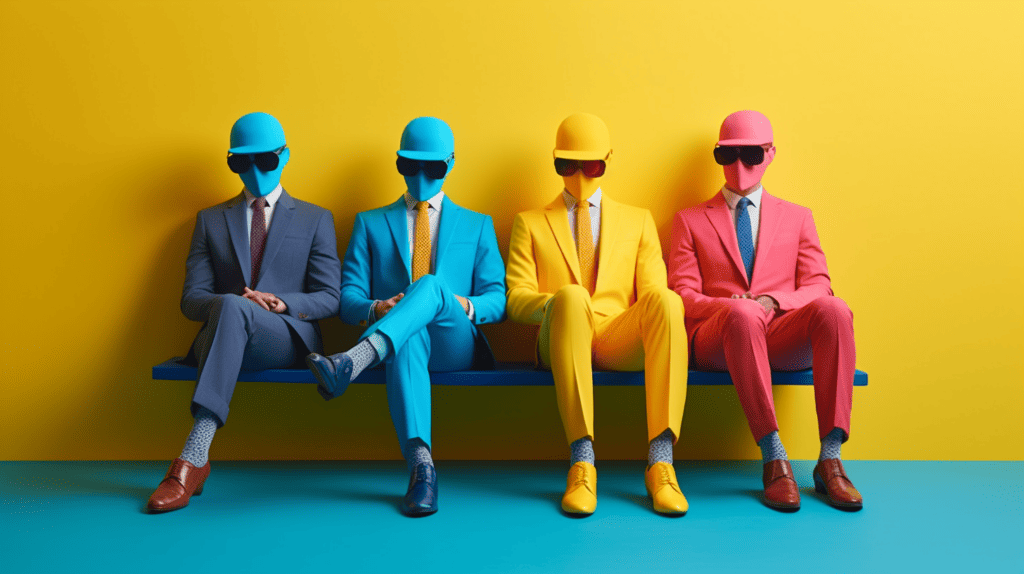
Encouraging Collaboration Between Humans and AI
Another approach is to encourage collaboration between human musicians and AI systems. By working together, artists can leverage AI-generated music’s strengths, such as the ability to process and analyze vast amounts of data, while also contributing their own creative ideas and emotions.
This collaborative approach can lead to the creation of entirely new musical genres and styles, as well as a deeper understanding of the relationship between humans and AI.
Investing in Music Education and Artistic Development
To ensure that human creativity remains a central component of music creation, it’s crucial to invest in music education and artistic development.
By teaching future generations about the importance of creativity and providing them with the skills needed to navigate the evolving music landscape, we can help maintain the human touch in the age of AI-generated music.

Creating Ethical Guidelines for AI-Generated Music
Finally, establishing ethical guidelines for the use of AI-generated music can help maintain a balance between the benefits of this technology and the importance of human creativity.
These guidelines could include regulations around ownership rights, compensation, and the appropriate use of AI-generated music in various contexts. By providing clear ethical standards, we can help ensure that AI-generated music is used responsibly and in ways that support human creativity.
Educating the Public About AI-generated Music
As AI-generated music becomes more prevalent, it is essential to educate the public about its implications, benefits, and challenges. Public awareness can help people make informed decisions about the music they consume and create a better understanding of the technology behind it. This includes discussing the various ethical considerations, ownership rights, and the impact on artists and the music industry as a whole.
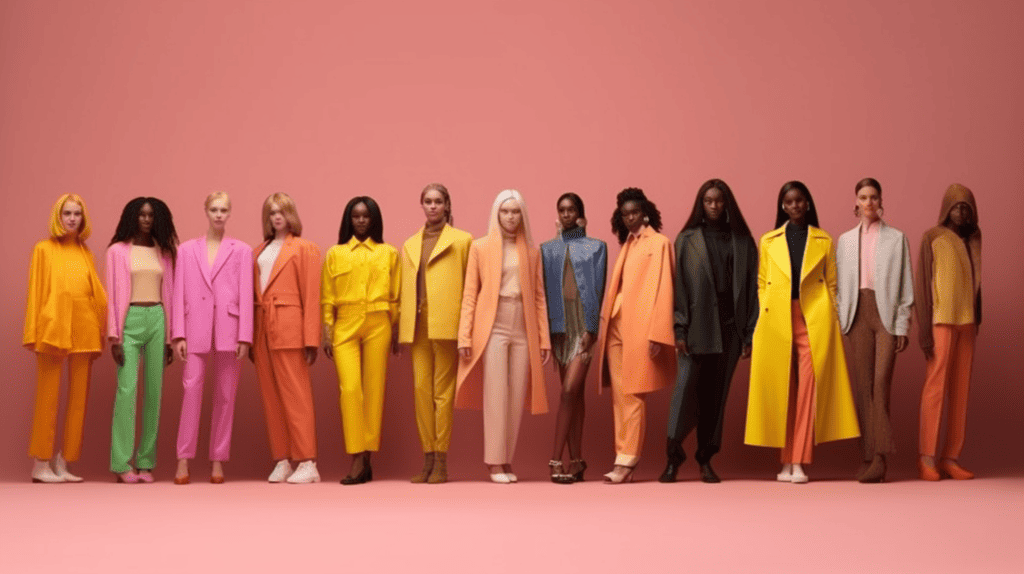
Educational programs, workshops, and online resources can be developed to inform the public about AI-generated music and its potential effects on the industry. By providing accessible information, people can better navigate the landscape of AI-generated music and develop informed opinions about its role in society.
Accessibility and Inclusivity in AI-generated Music
AI-generated music has the potential to make music creation more accessible and inclusive for people with disabilities or those who face other barriers to traditional music production. AI technology can provide alternative methods for composing, arranging, and producing music that may be more accessible to people with physical or cognitive limitations.
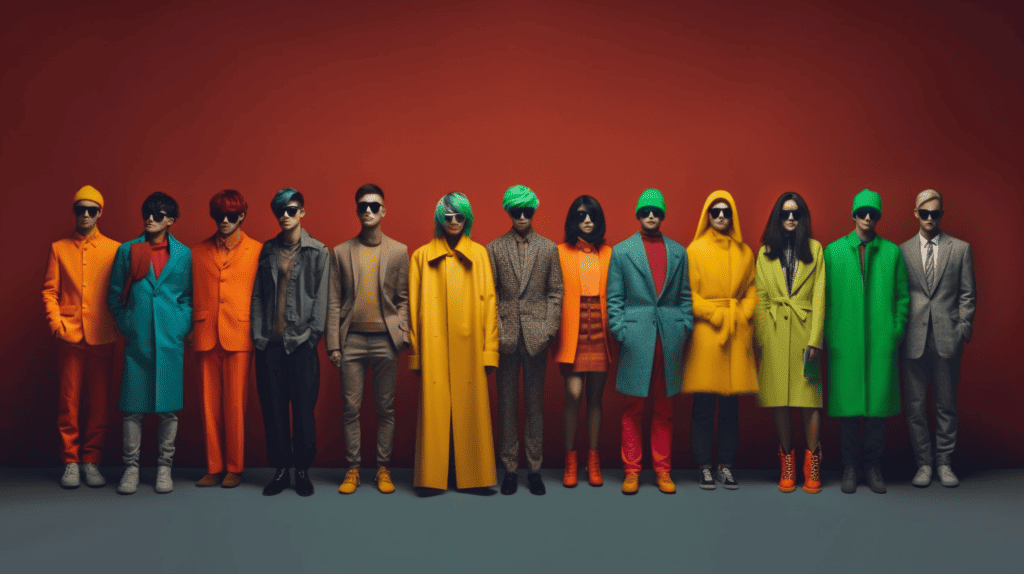
For example, AI-generated music can provide an opportunity for people with limited mobility to create music through voice commands or other alternative input methods. This can empower individuals who may not have had the opportunity to participate in music creation in the past.
However, it is essential to address potential challenges in accessibility and inclusivity, such as ensuring that AI-generated music tools are designed to be user-friendly and cater to a wide range of users, regardless of their abilities.
AI-generated Music in Film, TV, and Advertising
AI-generated music is not limited to the traditional music industry; it also has applications in other media, such as film scores, television soundtracks, and advertising campaigns. AI-generated music can provide an efficient and cost-effective alternative to traditional composition methods for various media projects, especially for smaller productions with limited budgets.
By utilizing AI-generated music in these contexts, creators can access a vast library of music that can be tailored to their specific needs, such as matching the tone or mood of a film scene or creating a catchy jingle for an advertising campaign.
AI-generated Music for Therapeutic Purposes
AI-generated music has potential applications in therapeutic contexts, such as mental health treatment, relaxation, or pain management. By utilizing AI-generated music, therapists and healthcare professionals can develop personalized music interventions to meet the specific needs of their patients.
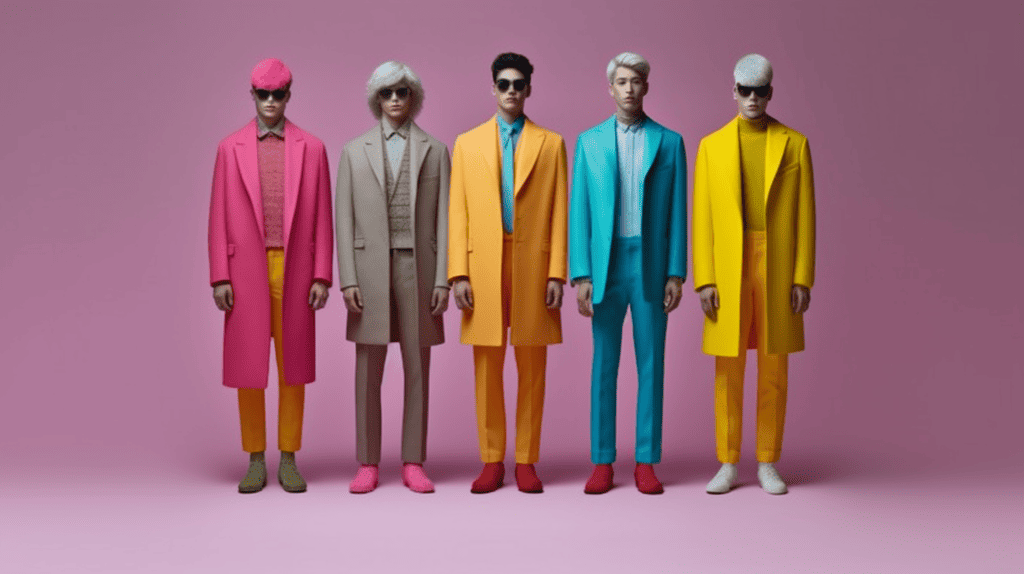
For example, AI-generated music can be used to create customized relaxation playlists that cater to individual preferences and respond to the listener’s physiological signals, such as heart rate or breathing patterns. This personalized approach can potentially enhance the effectiveness of music-based interventions in promoting relaxation and reducing stress.
Future Developments and Trends in AI-generated Music
As technology continues to advance, AI-generated music is expected to become more sophisticated and versatile. Future developments may include the creation of new AI-driven instruments, more advanced algorithms capable of generating complex compositions, and the integration of AI-generated music into live performance settings.
These advancements may lead to new genres of music, innovative performance styles, and novel ways of engaging with music as both creators and listeners. However, it is important to continue addressing the ethical considerations, ownership rights, and potential impacts on artists and the music industry as these advancements unfold.
Conclusion
In conclusion, while AI-generated music presents challenges for human creativity, it also offers new opportunities for artistic expression and innovation. By maintaining the human touch, encouraging collaboration between humans and AI, investing in music education, and establishing ethical guidelines, we can foster human creativity in the age of AI-generated music.
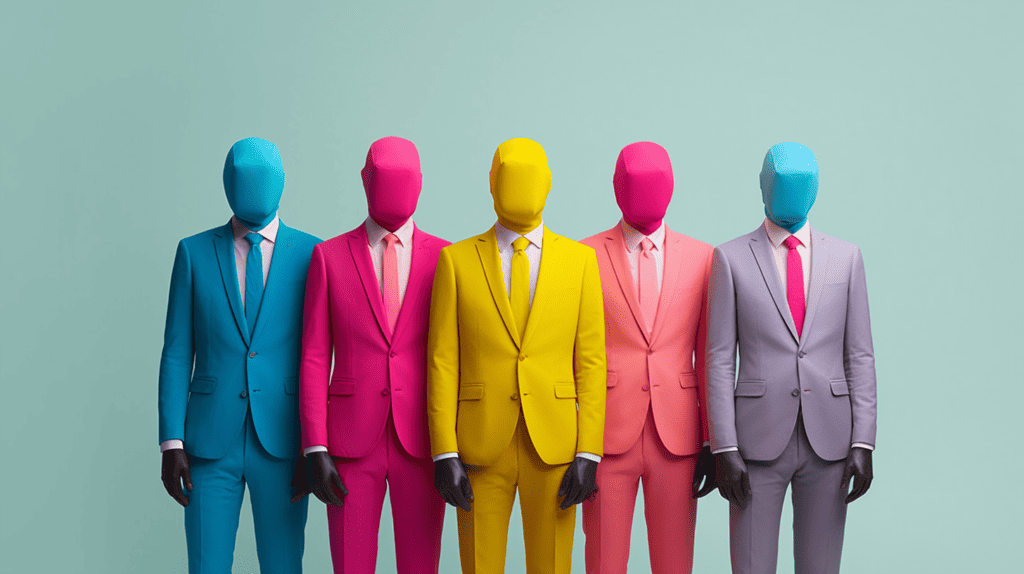
Ultimately, it’s up to us as a society to find ways to embrace this technology while also ensuring that human creativity remains at the heart of music creation.
Amore comprehensive understanding of AI-generated music’s role in the broader cultural and societal context, as well as potential future directions for this technology. By considering these aspects, we can develop a well-rounded perspective on the impact of AI-generated music and its potential to shape the future of music creation and consumption.
AI Generator
The Influence of Artificial Intelligence on The Creation of Music
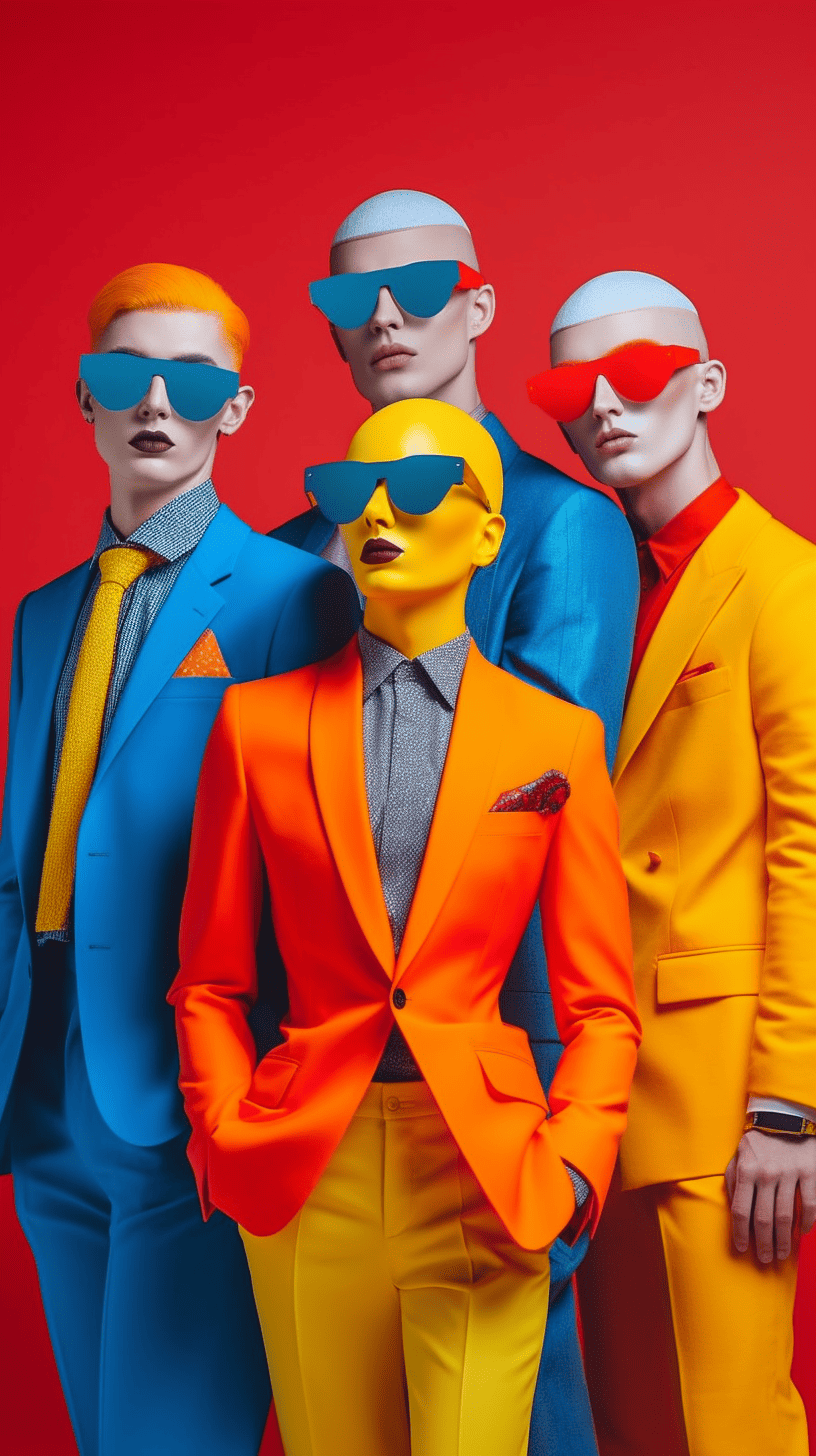
A New Era of Creativity and Expression
Music has always been a strong reflection of human innovation and emotions. Throughout history, our voices and musical instruments have played a crucial role in expressing our feelings, telling stories, and building relationships with others. As technology has advanced, our ways of creating music have also progressed.
Modern musicians now have access to various tools, enabling them to manipulate sound in unimaginable ways. Synthesizers can emulate virtually any sound, while digital audio workstations facilitate precise editing and manipulation of recorded tracks. And now, the rise of artificial intelligence (AI) offers musicians even more possibilities for music creation.
AI Applications in the Music Industry
AI is being utilized in multiple ways within the music industry. One popular application is generating original compositions based on existing musical data sets. By analyzing millions of songs across genres and periods, AI algorithms can identify patterns and generate new melodies or chord progressions that fit within those patterns.
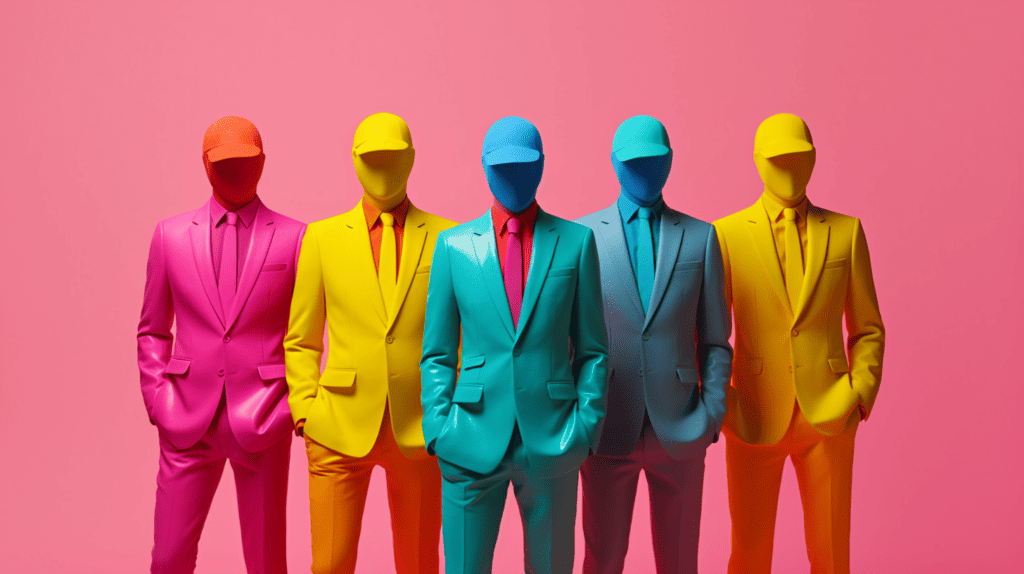
Another application involves using AI to enhance existing performances or recordings. For instance, software like iZotope’s RX can isolate individual instrumental tracks from a mix and remove unwanted noise or artifacts without impacting the rest of the recording.
Unintended Consequences and Concerns
However, as with any emerging technology, unintended consequences arise from using AI in music creation. One worry is that AI-generated music might lack the emotional depth and nuance that human performance offers. While an algorithm can create technically proficient melodies or chord progressions, it may not capture the same sense of emotion or passion found in a live performance.
Another concern revolves around ownership rights of AI-generated music. If an algorithm generates an original composition based on data sets owned by multiple parties (such as record labels or streaming platforms), who has the rights to that composition? This question has already sparked legal battles between artists collaborating with AI algorithms and those claiming ownership over their contributions.
Harnessing AI for Collaboration and Growth
Many musicians and industry professionals see AI as an opportunity for collaboration and growth. AI can be a creative assistant, inspiring artists, helping them overcome writer’s block, or even offering suggestions to improve their compositions. As AI technology continues to evolve, its ability to learn from and adapt to a musician’s style will improve, further enhancing the creative process.
AI in Music Education and Talent Discovery
AI also has the potential to revolutionize music education and talent discovery. With AI-powered music learning apps and platforms, students can receive personalized instruction based on their skill level and learning style. Furthermore, AI can analyze and identify undiscovered talent by evaluating their performances and predicting their potential for success.
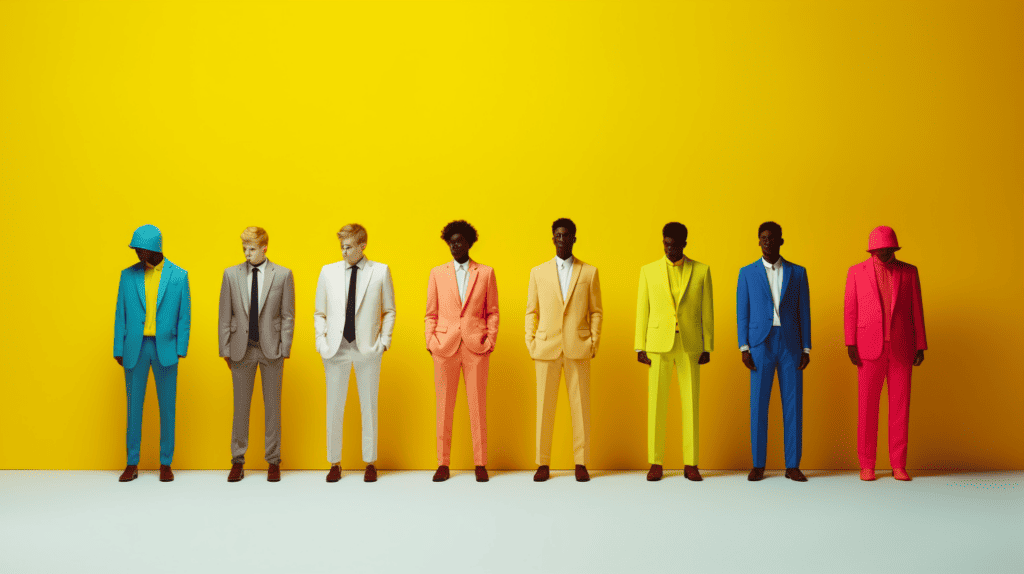
Addressing Ethical Considerations and Regulations
To ensure the responsible integration of AI into the music industry, it is essential to address ethical considerations and establish regulations. For instance, guidelines should be set to ensure that AI-generated compositions do not infringe on existing copyrights or that AI technology is not used maliciously to plagiarize or manipulate the work of others.
Additionally, as AI-generated music becomes more prevalent, it is crucial to develop clear standards for crediting the contributions of both human artists and AI algorithms to a given work. This will help to prevent legal disputes and foster a fair and transparent environment for all parties involved.
Ethical Considerations in AI-Generated Music
As AI-generated music becomes increasingly widespread, various ethical concerns emerge. Some of these concerns include the potential for AI-generated music to contribute to cultural appropriation, the dilution of traditional music styles, or the homogenization of music in general.
Cultural Appropriation
Cultural appropriation occurs when elements of one culture are adopted or used by members of another culture, often in a way that is disrespectful or exploitative.

AI-generated music, which often relies on large datasets of existing music, might inadvertently incorporate elements of various cultures without giving proper credit or understanding the cultural context. This can result in the misrepresentation or trivialization of the original culture and may lead to further marginalization of underrepresented communities.
Dilution of Traditional Music Styles
AI-generated music algorithms are often designed to identify popular patterns and trends within the music they analyze.
As a result, the output may lean heavily toward mainstream or widely-accepted styles, which can dilute traditional or less-popular music styles. Over time, this may result in a decline in the diversity of music genres and a loss of unique cultural expressions and heritage.
Homogenization of Music
The widespread use of AI-generated music could also contribute to the homogenization of music, as algorithms tend to create compositions based on patterns and trends found in existing data. This may result in technically proficient music lacking the distinctiveness and creativity found in human-generated compositions.
As AI-generated music becomes more prevalent, there is a risk that the rich tapestry of diverse musical styles and influences may be reduced to a more uniform, less imaginative landscape.
In conclusion, while AI-generated music offers exciting opportunities for innovation and new forms of creativity, addressing and considering the ethical implications of its widespread use is crucial. It is essential to develop ways to preserve cultural diversity and respect the heritage of various music styles while embracing the potential of AI in music creation.
Embracing the AI-Infused Future of Music
The increasing influence of AI in the music industry offers an exciting new frontier for creativity, collaboration, and innovation. By addressing the potential concerns and working together to create ethical guidelines and regulations, musicians, industry professionals, and AI developers can ensure that the integration of AI into the music landscape is both responsible and beneficial.
As we embrace this AI-infused future, we can look forward to new and innovative ways to create and enjoy music, while also remaining mindful of the potential pitfalls and challenges that come with any technological advancement. With the right approach, the future of music and AI has the potential to be a harmonious and groundbreaking partnership.
Despite these concerns, it’s undeniable that AI is revolutionizing the music industry in thrilling ways. It enables new forms of creativity and experimentation while also presenting unique challenges for artists and record labels alike. As we continue to navigate this new era of music creation, it will be fascinating to see how these unintended consequences evolve.
-
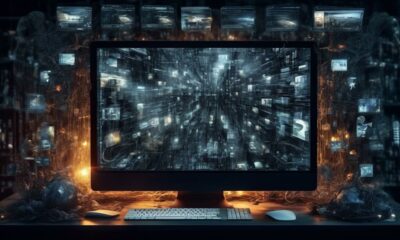
 Vetted2 months ago
Vetted2 months ago11 Best Gore Websites to Explore the Darker Side of the Internet
-
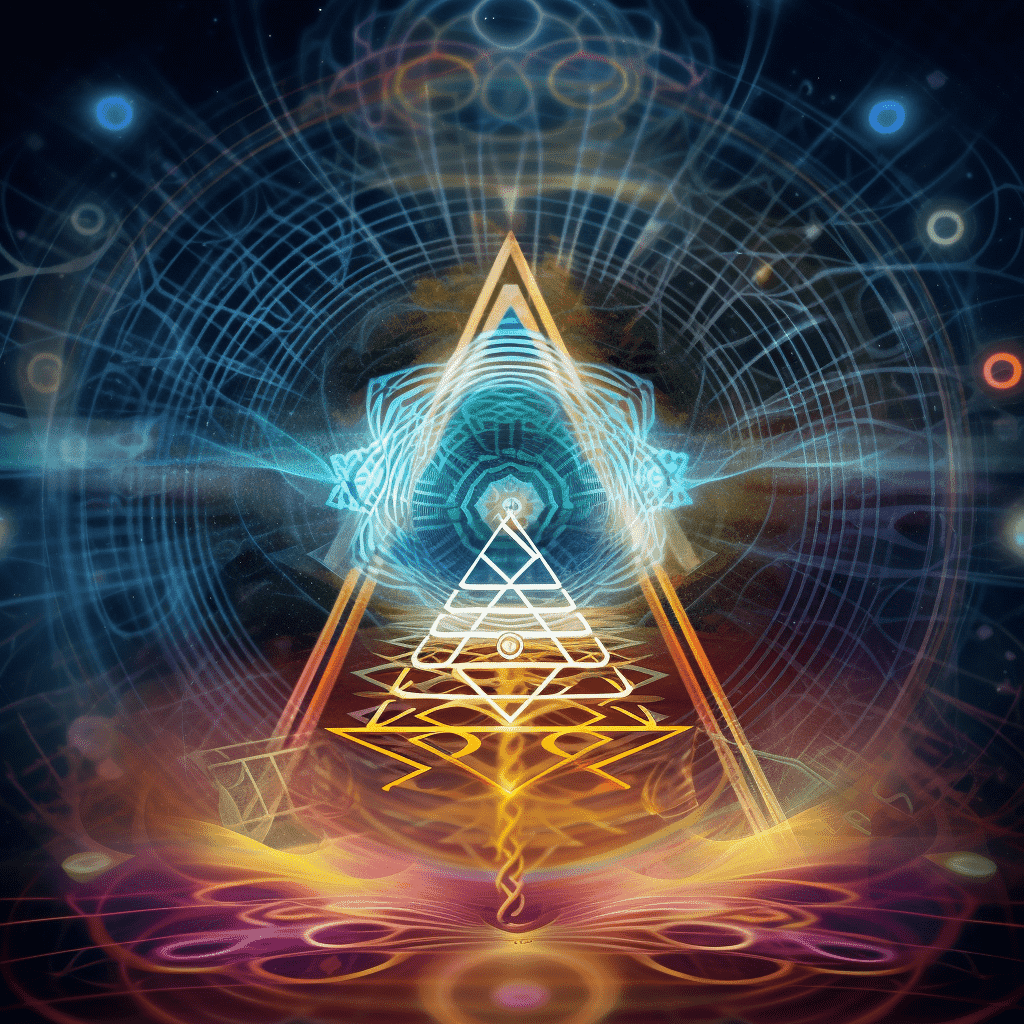
 Music Theory2 weeks ago
Music Theory2 weeks agoUnlocking Nature’s Harmony: The Power of 432 Hz Frequency in Sound & Music for Enhanced Living and Well-Being
-

 Vetted1 month ago
Vetted1 month ago15 Best Commercial Vacuum Cleaners for Heavy-Duty Cleaning Jobs
-

 Vetted2 months ago
Vetted2 months ago15 Best Essential Oils Brands to Elevate Your Aromatherapy Experience
-
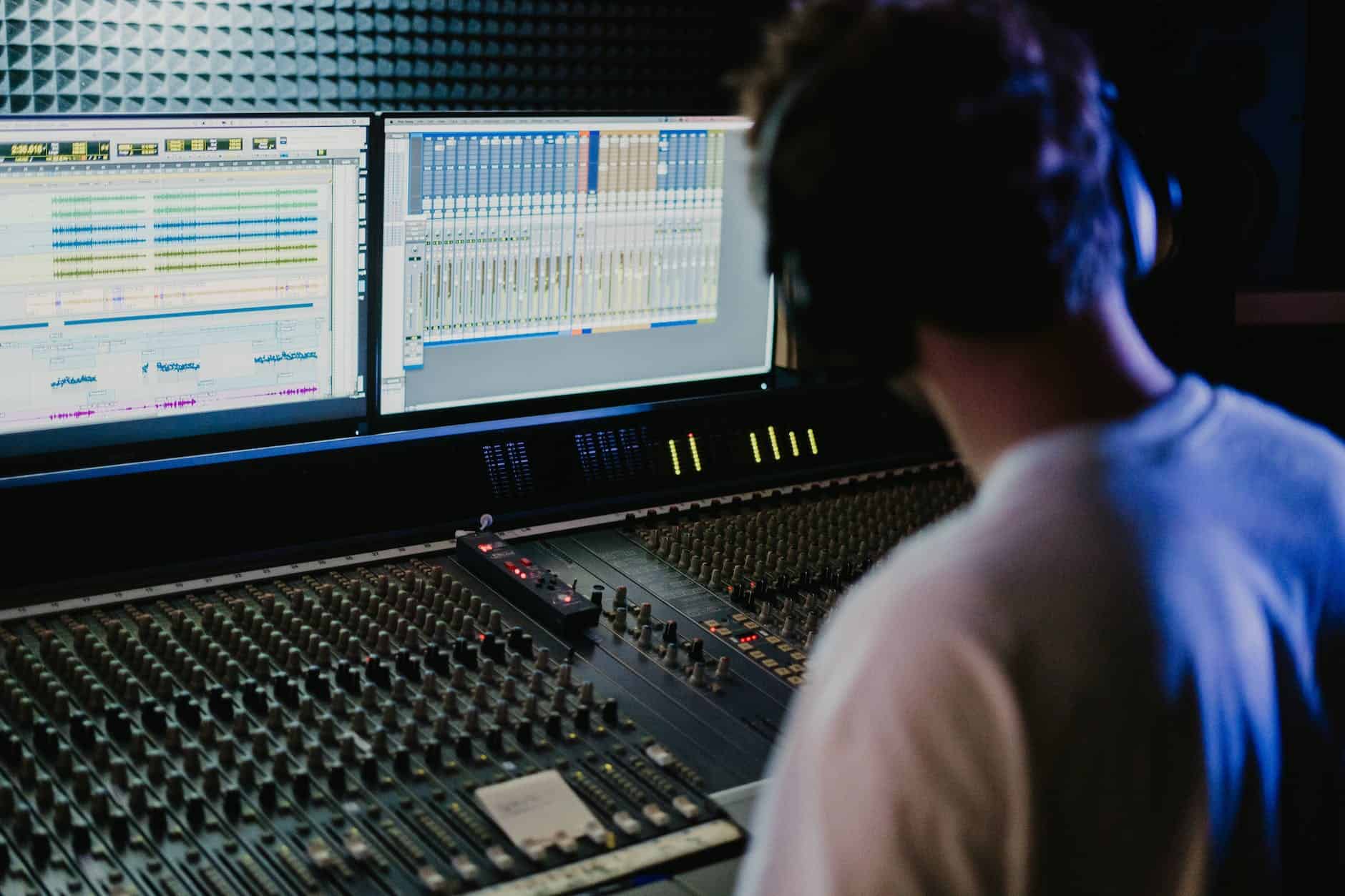
 Sound Design2 weeks ago
Sound Design2 weeks agoWhat Is the Difference Between a Sound Engineer and A Sound Designer?
-

 Native Instruments Kontakt2 weeks ago
Native Instruments Kontakt2 weeks agoVOCAL AI – Animated Intelligence: The Ultimate Vocal Playground
-
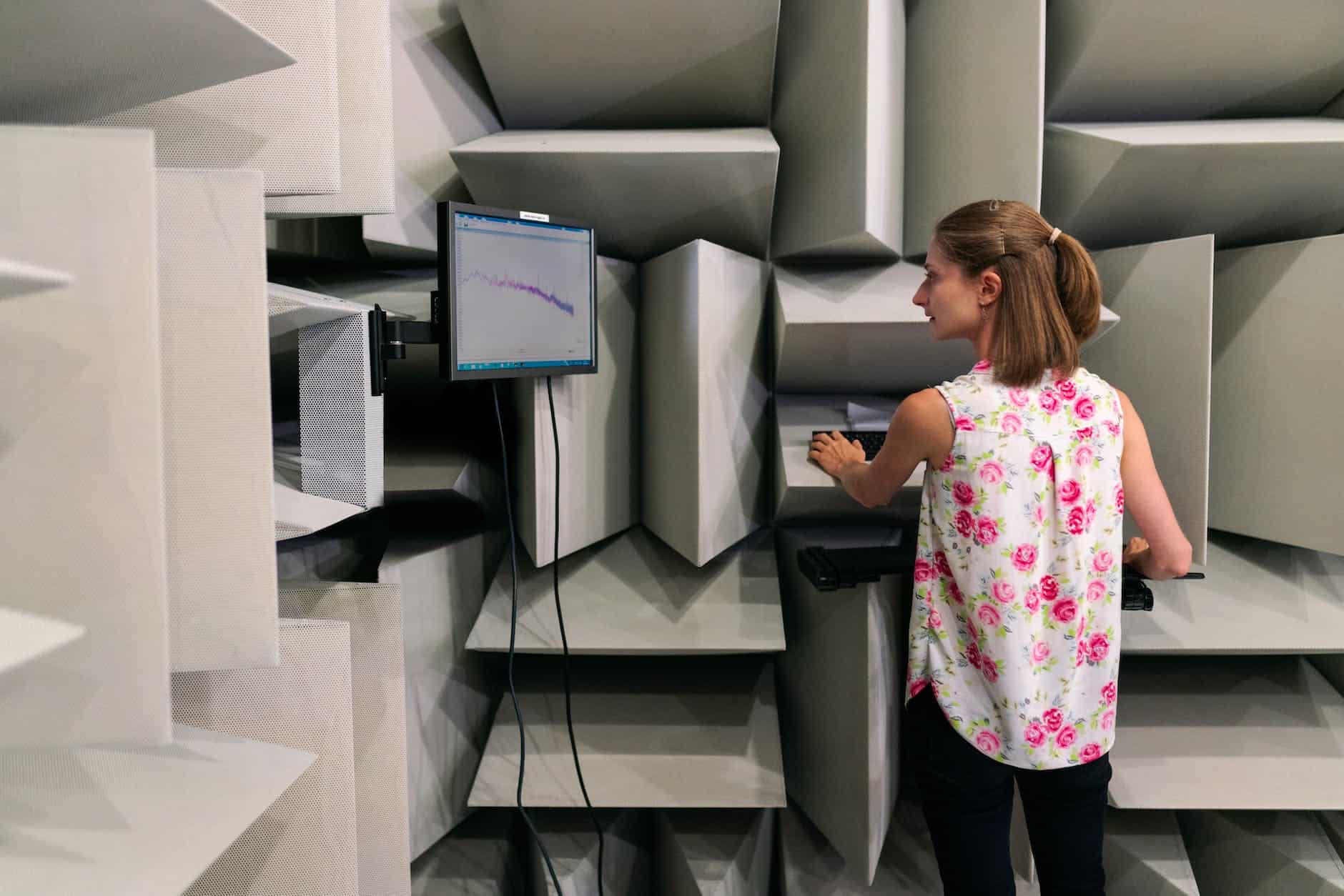
 Sound Design2 weeks ago
Sound Design2 weeks agoWhy Sound Engineer
-

 Vetted2 months ago
Vetted2 months ago15 Best Concrete Sealers for Ultimate Protection and Longevity









